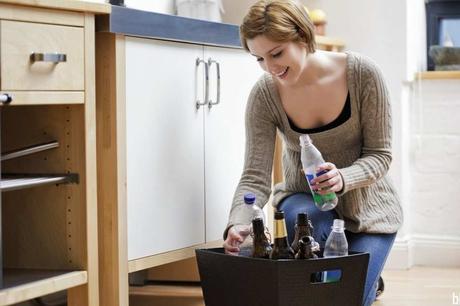
The idea of moving from a normal kitchen to a zero-waste space can seem very daunting, particularly if you haven't had any experience of a zero-waste environment before. Here in the UK, our lives have been extremely reliant on the ready-availability of disposal and easily replaceable items in carrying out everyday tasks.
The kitchen is the most wasteful area in the home, which disposable items like cling film, kitchen towels, packaging and other items have been present for many years. If you're looking to explore the possibility of a zero-waste lifestyle, then the kitchen is probably the best place to start.
With the ready availability of skip hire and all across the country, a zero-waste lifestyle can be easily achieved, resulting in a greatly reduced impact on the environment and local waste management and removal services.
Why Should I Move Towards A Zero-Waste Lifestyle?
Of course, we understand that a zero-waste lifestyle will not be suitable, or even possible, for everyone, but aiming in that direction is a great way to reduce the amount of waste that we produce daily. The less waste that we produce, the less strain will be placed on our waste management services, the better it will be for the environment and the more affordable it will be for your wallet.
Wastes which get sent to landfills create greenhouse gases, which contribute to global warming. Aside from this, there are other major concerns associated with the amount of waste that we create, from irreparably destroying the beauty of natural landscapes to the risk of causing damage to local wildlife which can ingest or get caught up in the waste.
Total zero-waste in the modern world is almost impossible, but if we all tried to move just a little in that direction, we would really be able to help the environment in a major way.
Top Tips for A Zero-Waste Kitchen
- Swap Disposable Waste for Reusable Alternatives - This involves the swapping out of kitchen towels for reusable cloths and sandwich bags for reusable containers. There are a range of other techniques, such as using cloth napkins instead of paper ones at the dinner table, which can really make a difference to the amount of waste that you create.
- Say Goodbye to Plastic Bags! - You don't really need plastic bags in your home, even if you think you do! Now that the new 5p tax has come into effect, it is in fact a lot cheaper to find reusable alternatives rather than wasteful plastic carrier bags.
- Embrace Tap Water - You may think that bottled water is better for you, but it really isn't any different. If you don't like the taste of your tap water, why not just add a slice of fresh fruit or a squeeze of lemon to your drink - not only will it taste nicer, but you'll be adding healthy nutrients as well.
- Buy in Bulk - Buying in bulk means a lower product to packaging ratio, which can only be a good thing when it comes to waste reduction. Not only will buying from large outlet stores save you money on a range of products, but it will mean that you need to go shopping less.
- Consider Your Food Waste - There are a range of ways in which you can lower the amount of food waste you create. Simply scrubbing your vegetables instead of peeling them, for example, will cut down on scrap waste immediately. For some food waste, you can simply use it for other means; over-ripe bananas are perfect for baking, and spring onions will usually re-grow when placed in a jar with some water.
A Zero-Waste Environment
The reality is that very, very few of us will ever be able to attain a complete zero-waste lifestyle; however, by following these tips and making the most of reliable and environmentally conscious skip hire, you will be able to drastically reduce the impact that you have on the environment.
